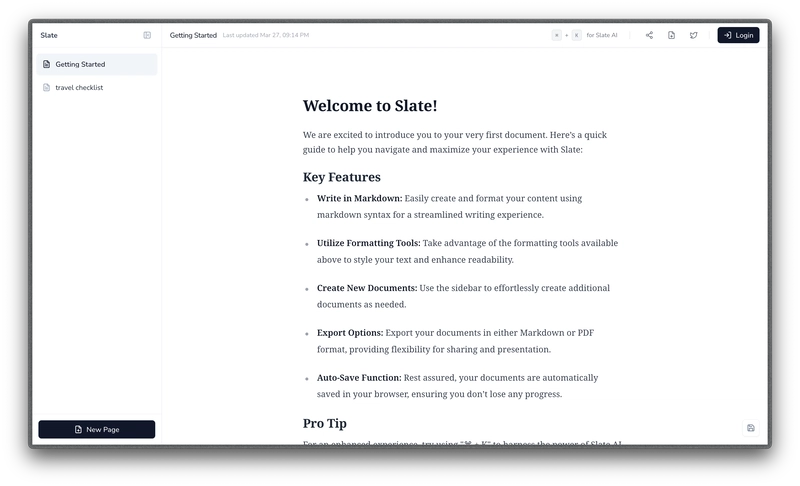JDK 24 New Features Every Java Developer Must Know
Java Development Kit (JDK) 24 brings a new set of powerful features aimed at improving performance, code readability, and developer experience. In this article, we will explore the major enhancements in JDK 24 with brief coding examples to demonstrate their practical applications. 1. Primitive Types in Patterns, instanceof, and switch (JEP 488) Overview JDK 24 extends pattern matching by allowing primitive types in all pattern contexts. The instanceof and switch statements now support primitive types, making the language more expressive and eliminating unnecessary casts. Example: instanceof with Primitive Types public class InstanceofExample { public static void main(String[] args) { Object value = 42; if (value instanceof int i) { System.out.println("Integer value: " + i); } } } Example: switch with Primitive Type Patterns public class SwitchExample { public static void main(String[] args) { int status = 2; String message = switch (status) { case 0 -> "OK"; case 1 -> "Warning"; case 2 -> "Error"; case int i -> "Unknown status: " + i; }; System.out.println(message); } } 2. Flexible Constructor Bodies (JEP 492) Overview JDK 24 allows statements to appear before explicit constructor invocations (super() or this()). This improvement enables better initialization of fields before invoking another constructor. Example: Validating Arguments Before Calling Superclass Constructor class Person { String name; Person(String name) { this.name = name; } } class Employee extends Person { Employee(String name) { if (name == null || name.isBlank()) { throw new IllegalArgumentException("Name cannot be empty"); } super(name); } } 3. Module Import Declarations (JEP 494) Overview A new import module syntax simplifies modular programming by allowing all exported packages of a module to be imported in one statement. Example: Importing a Module import module java.sql; public class ModuleImportExample { public static void main(String[] args) { System.out.println("Module import works!"); } } 4. Simple Source Files and Instance Main Methods (JEP 495) Overview JDK 24 allows writing Java programs without class declarations. It also introduces instance main methods, making Java more beginner-friendly and reducing boilerplate code. Example: Writing a Simple Java Program Without a Class void main() { System.out.println("Hello, World!"); } Run the program with: java HelloWorld.java Example: Instance main Method class HelloWorld { void main() { System.out.println("Instance main method works!"); } } Run with: java HelloWorld.java Conclusion JDK 24 introduces significant enhancements that simplify coding, improve readability, and enhance modular development. Features like primitive type patterns, flexible constructor bodies, module imports, and simplified source files make Java even more efficient and enjoyable to work with. Java developers should start experimenting with these features to stay ahead in the evolving ecosystem.

Java Development Kit (JDK) 24 brings a new set of powerful features aimed at improving performance, code readability, and developer experience. In this article, we will explore the major enhancements in JDK 24 with brief coding examples to demonstrate their practical applications.
1. Primitive Types in Patterns, instanceof, and switch (JEP 488)
Overview
JDK 24 extends pattern matching by allowing primitive types in all pattern contexts. The instanceof and switch statements now support primitive types, making the language more expressive and eliminating unnecessary casts.
Example: instanceof with Primitive Types
public class InstanceofExample {
public static void main(String[] args) {
Object value = 42;
if (value instanceof int i) {
System.out.println("Integer value: " + i);
}
}
}
Example: switch with Primitive Type Patterns
public class SwitchExample {
public static void main(String[] args) {
int status = 2;
String message = switch (status) {
case 0 -> "OK";
case 1 -> "Warning";
case 2 -> "Error";
case int i -> "Unknown status: " + i;
};
System.out.println(message);
}
}
2. Flexible Constructor Bodies (JEP 492)
Overview
JDK 24 allows statements to appear before explicit constructor invocations (super() or this()). This improvement enables better initialization of fields before invoking another constructor.
Example: Validating Arguments Before Calling Superclass Constructor
class Person {
String name;
Person(String name) {
this.name = name;
}
}
class Employee extends Person {
Employee(String name) {
if (name == null || name.isBlank()) {
throw new IllegalArgumentException("Name cannot be empty");
}
super(name);
}
}
3. Module Import Declarations (JEP 494)
Overview
A new import module syntax simplifies modular programming by allowing all exported packages of a module to be imported in one statement.
Example: Importing a Module
import module java.sql;
public class ModuleImportExample {
public static void main(String[] args) {
System.out.println("Module import works!");
}
}
4. Simple Source Files and Instance Main Methods (JEP 495)
Overview
JDK 24 allows writing Java programs without class declarations. It also introduces instance main methods, making Java more beginner-friendly and reducing boilerplate code.
Example: Writing a Simple Java Program Without a Class
void main() {
System.out.println("Hello, World!");
}
Run the program with:
java HelloWorld.java
Example: Instance main Method
class HelloWorld {
void main() {
System.out.println("Instance main method works!");
}
}
Run with:
java HelloWorld.java
Conclusion
JDK 24 introduces significant enhancements that simplify coding, improve readability, and enhance modular development. Features like primitive type patterns, flexible constructor bodies, module imports, and simplified source files make Java even more efficient and enjoyable to work with. Java developers should start experimenting with these features to stay ahead in the evolving ecosystem.










![[FREE EBOOKS] The Ultimate Linux Shell Scripting Guide, Artificial Intelligence for Cybersecurity & Four More Best Selling Titles](https://www.javacodegeeks.com/wp-content/uploads/2012/12/jcg-logo.jpg)































































